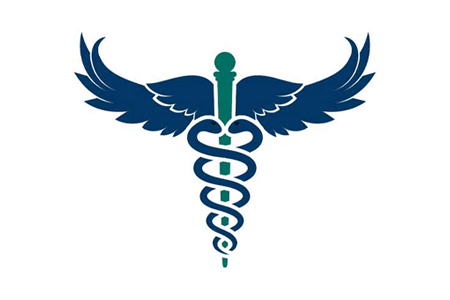An organization’s culture shows through in the conversations. Improving the quality of conversations can create cascading culture change and better business outcomes.
Talent Development Conversations
Home > Our Leadership Development Solutions & Services > Leadership Topics > Talent Development Conversations
Effective Talent Conversations Are Where Development Becomes Real
Development conversations with employees should happen more than once or twice a year.
Demands placed on managers to meet performance goals can be relentless, and priorities and challenges shift frequently.
That’s why the key to improving your talent development processes is ensuring that managers can hold meaningful talent conversations and know how to give routine feedback well.
Talent conversations play a vital role in engaging employees and influencing their performance and development, but only if they are done effectively and often enough. They allow managers to influence others toward improved performance, development, and positive outcomes.
These development conversations with employees can (and should) happen at any time, not just during your regular performance review process.
The key to an effective career development conversation is preparation. Our talent conversations content provides models that managers can learn and practice in order to get the most from development conversations with employees.
The talent conversation itself will vary based on how an employee is performing. The focus will depend on whether the employee is considered top talent, a solid performer, a potential performer, or an underperformer.
Whatever other formal talent management or leadership development systems are in place, talent conversations are where development becomes real. It’s the best time for managers to build their direct report’s commitment to the organization and engagement in the work.
Upskill Your Team With Talent & Development Conversation Skills
Engage Both Leaders and Employees With Effective Talent & Career Development Conversations
Leaders can prepare for and facilitate development conversations with employees using our proven development frameworks:
- Follow our Assessment, Challenge, Support (ACS) model as a strategy to prepare to have a talent conversation.
- Leverage our Attention, Belief, and Connection (ABC) model to demonstrate behaviors necessary to effectively conduct a talent conversation.
- Discover your strengths and areas for opportunities in your coaching style.
Start having better development conversations with employees at your organization by equipping your team with these talent conversation skills. We can deliver our world-class, research-backed talent conversations content to them — or you can.
You Can Deliver Our Talent Conversations Content, or We Can
You Deliver
We can equip your facilitators to deliver a workshop or internal training on development conversations with employees either online or in person, whichever you prefer:
Access everything your internal HR or team leaders need to upskill your people by holding a leadership workshop on talent conversations
Leverage this proven leadership program content on talent conversations and customize it for your own internal development initiatives
We Deliver
Or, we can incorporate talent conversations as part of a larger leadership development initiative for your organization:
Combine with other topic modules and interactive experiences into a customized learning journey for your leaders
Our highly personalized leadership programs prepare leaders to address common challenges with talent conversations
What Our Clients Are Saying
Organizations that have partnered with us to upskill their ability to have effective development conversations with employees consistently tell us the same thing: their experience with CCL made a significant impact on their culture — and their bottom line.
But don’t just take our word for it — take theirs.
“The reputation of having a formal coaching program that is trusted and relied upon has enabled us to now start coaching at the top levels of the organization. And the quality of our coaches — we’re getting great feedback.”

Senior Director of Team and Leadership Development
Major Healthcare System
“The Better Conversations program was so impactful by using real experiences, and having a coach in each group makes it really effective and creates lasting impact.”

Program Participant
Let’s Discuss Talent & Career Development Conversations at Your Organization
Our experts are here to help. Let’s have a conversation about development conversations with employees at your organization and how our talent conversations content could help support your development initiatives.
Our Research-Backed Perspective on Development Conversations With Employees
Have a difficult colleague? Confrontation may seem scary, but when done correctly, it leads to positive outcomes for everyone involved. Here’s how to get the best results.
Help managers hold more effective talent conversations and give more constructive feedback, and you’ll greatly improve your talent development processes.
Frequently Asked Questions About Talent & Career Development Conversations
Talent and career development conversations play a critical role in engaging employees and influencing their performance — but only if they are done effectively and frequently. These conversations also allow managers to share feedback that encourages and supports others in adopting behaviors that improve performance, enhance their development, and drive positive outcomes for the organization. Plus, career development conversations are a great time for managers to build commitment and motivation among their direct reports and cultivate a strong feedback culture.
Holding a talent conversation with an employee will vary based on how the individual is performing. The focus of the discussion will depend on whether the employee is considered top talent, a solid performer, a potential performer, or an underperformer. If you’re a manager facing an upcoming conversation with an underperforming or difficult employee, remember that this is a great time to help shift behaviors and drive real development. Consider leveraging these 5 steps for tackling difficult conversations.
First, it’s important to understand that development conversations with employees should happen more than once or twice a year. The key to preparing for an effective talent conversation is to leverage our proven development frameworks, including Assessment, Challenge, Support (ACS) and our SBI model for holding regular feedback conversations with employees. By using these tools, managers will be able to help direct reports discover their strengths and areas for opportunity through feedback and coaching.
More questions? Our experts are here to help. Let’s have a conversation!
Other Topics Related to Talent Conversations
Package our research-backed boundary spanning leadership content with other proven leadership development topics and solutions for a customized scalable solution perfect for your organization’s unique needs, context, and culture. Related topics include:



